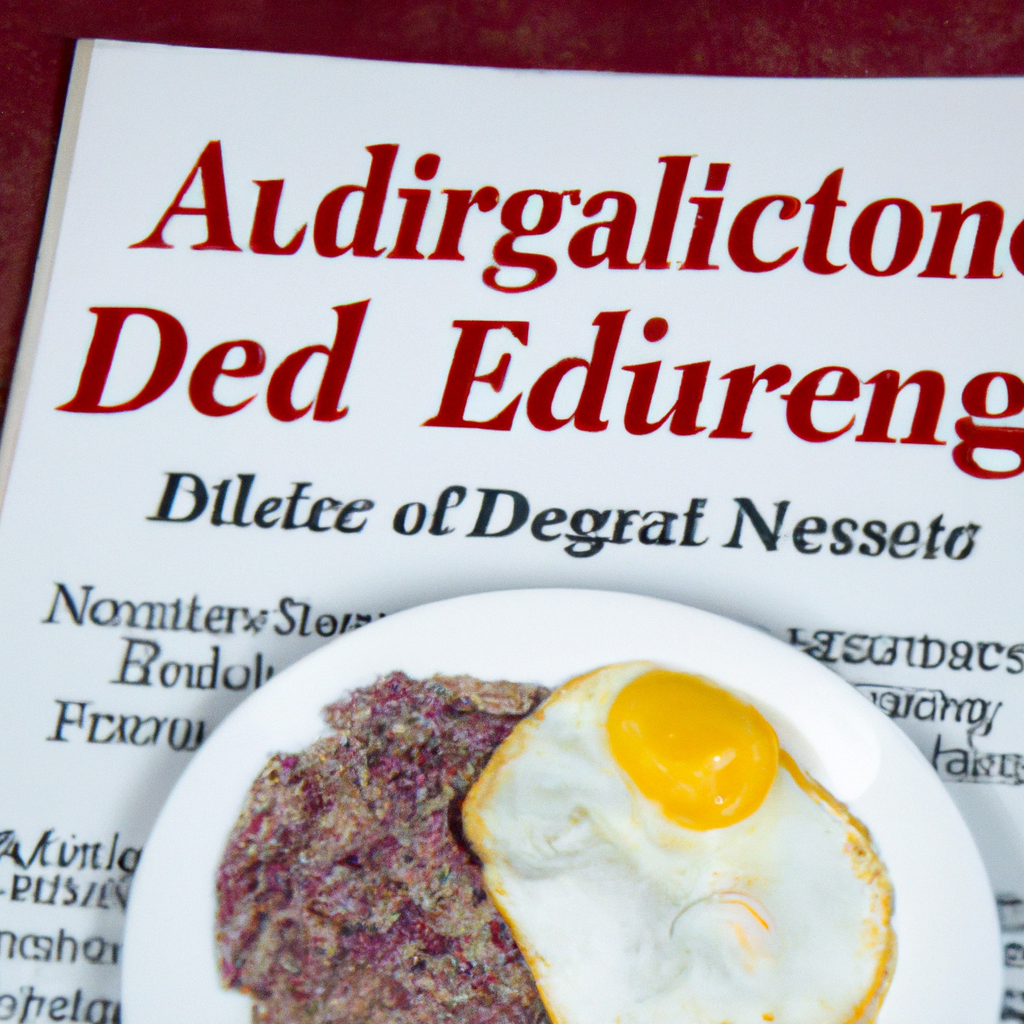As we grow older, our nutritional requirements change, and with that, so should our dietary choices. However, providing the elderly with nourishing and appropriate meals that meet those changing needs can be a daunting task. From hasty food selections to cooking for one, ensuring elderly nutrition is something that requires a different approach. With this article, we will look at the importance of providing our aging bodies with the right nutrition and how to do so in a way that is both sensible and tasty.
1. Nourishing meals for the elderly
As we get older, it’s essential to ensure that our diets are healthy and nutritious! Especially for those who are elderly, making sure they have access to nourishing meals can be the key to sustaining an improved quality of life. Here are some nourishing meal ideas for the elderly:
- Salads: Leafy green salads with plenty of vegetables, such as tomatoes and carrots, are packed full of important vitamins and minerals. Add an avocado and some feta cheese for a protein boost as well.
- Soups: Soups made with vegetables, beans, and grains are an easy way to ensure elderly individuals get the nutrition they need. Be sure to choose healthy, low-sodium stock for the base.
- Fruits: Fruits are nature’s candy! Add a variety of fresh and seasonal fruits to meals, such as apples, oranges, bananas, and melons.
- Meats: Lean meats like chicken, fish, and turkey are excellent sources of protein. Choose cuts with low-fat content to ensure healthy and nutritious meals.
These simple meal ideas can help to provide elderly individuals with the nourishment they need for a healthy and balanced diet. Additionally, some elderly individuals have difficulty chewing solid foods. For those cases, blending fruits and vegetables together can help ensure that they get the vitamins and minerals they need.
When it comes to caring for the elderly, nourishing meals are essential to healthy living. With these meal ideas, you can ensure that they receive the vitamins and minerals they need for optimal health and wellbeing.
2. Understanding basic nutrition for seniors
As seniors age, understanding nutrition shouldn’t be overlooked. Reviews of nutritional habits can help enhance longevity and quality of life. When incorporating nutrition into an elder’s health plan, the following considerations should be taken into account:
- A Variety of Fruits and Vegetables: Eating a variety of fruits and vegetables can reduce the risk of chronic diseases like coronary heart disease, stroke, type 2 diabetes and some kinds of cancer. Seniors should aim for five or more servings a day.
- Healthy Protein Choices: Protein sources such as eggs, chicken, most fish, legumes or tofu are good choices. Plant proteins are especially important for those that do not eat animal products. Seniors should aim for a minimum of 0.8 grams of protein per kilogram of bodyweight a day.
- Low-Fat Dairy or Plant Alternatives: Dairy products such as milk, yogurt, and cheese are excellent sources of calcium, potassium, and vitamin D. Dairy alternatives such as soy milk and tofu can also be recommended for those looking to avoid animal products.
Including dietary supplements can help seniors meet their nutrition needs also. These can be tailored to specific needs such as B-12, iron, Omega-3s, and magnesium. Additionally, the amount of sodium in the diet should also be monitored.
Eating nutritiously is especially important for seniors. With age, hunger may decline and weight loss is often seen. Eating small meals during the day can help counteract these effects. It is important for seniors to choose foods that are nutrient-dense, or provide important nourishment in fewer calories. Finally, seniors tend to be at risk for diseases like osteoporosis, so it’s important to pay particular attention to bone health and getting enough calcium and vitamin D.
3. Making meals tailored to elderly needs
When making meals for elderly people, it is important to keep in mind their particular needs and preferences. There are some common dietary considerations when it comes to the elderly, in order to keep them healthy and nourished. Here are some tips for .
Try to include as many nutrients as possible. An elderly person may not need as many calories as a younger person, but they need just as many essential vitamins, minerals, and other nutrients. It is important to include a variety of foods in the meal that contain these vital nutrients. Adding protein-rich foods such as lean meats, eggs, dairy, and legumes is a great way to ensure they get the right amount of protein. Fruits and vegetables should also be included to ensure they get enough essential vitamins and minerals.
Limit processed and sugary foods. Processed foods and foods high in sugar are not very healthy for anyone, but especially for elderly people. Foods high in sugar can cause spikes in blood sugar levels which can be dangerous in some cases. Processed foods may also lack essential vitamins and minerals, so it is best to avoid them. When preparing meals, focus on foods that are as close to their natural state as possible.
Think about texture. The texture of the food can make a big difference in how enjoyable a meal is for elderly people. Soft and creamy foods help make the meal easier to swallow. Hard or crunchy foods can be difficult and uncomfortable to chew for someone whose teeth are not as strong as they once were. It is important to consider these factors when preparing meals.
Include fluid. In addition to the food itself, make sure to include a glass of liquid with the meal. Water is best, but juice or tea can also be beneficial. Good hydration is important for elderly people, as they may not be able to sense thirst as easily as others. Offering a drink with meals will help ensure they stay hydrated.
4. Enriching life with healthy foods
Fresh foods like fruits and veggies are not only delicious, but they can also help you stay healthy and add some much needed nutrition to your life. They are packed with vitamins, minerals, and fiber that your body needs to stay healthy and energized. By adding these foods into your diet, you can increase your energy, improve your immunity and reduce your risk of certain diseases.
Eating healthy foods can also help you maintain a healthy weight. Many of these foods are full of important nutrients but are low in calories, meaning they provide satiety without having a lot of excess calories. By focusing on whole-grain carbohydrates, lean proteins, and healthy fats, you can form a balanced diet plan that helps you maintain your weight and fuel your body.
In addition to the health benefits, many healthy foods have other benefits that can improve your quality of life. For example, foods that are high in iron can help boost your mood while foods that are high in antioxidants can help protect your cells from environmental stressors. By including a variety of healthy foods in your diet, you can get all of the essential nutrients your body needs while also reducing your risk of disease and keeping your body feeling its best.
Adding healthy foods into your diet can be a great way to improve your life. Here are some tips to help you get started:
- Incorporate fruits and vegetables into your meals and snacks.
- Choose whole grains and high fiber seeds instead of processed carbohydrate sources.
- Swap unhealthy fats for heart-healthy fats like olive oil and avocados.
- Choose lean proteins like fish, poultry, and tofu.
- Add herbs and spices to meals for additional flavor and nutrition.
By following these steps and adding fresh, healthy foods to your diet, you can enjoy a newfound feeling of vitality and increase your overall wellbeing.
There is no greater gift than providing the elderly with the proper nutrition they need to live out their golden years with health and happiness. With as little as a few modifications to their diets, everyone can make an effort to help nourish the elderly and make sure that their bodies stay nurtured and strong.



